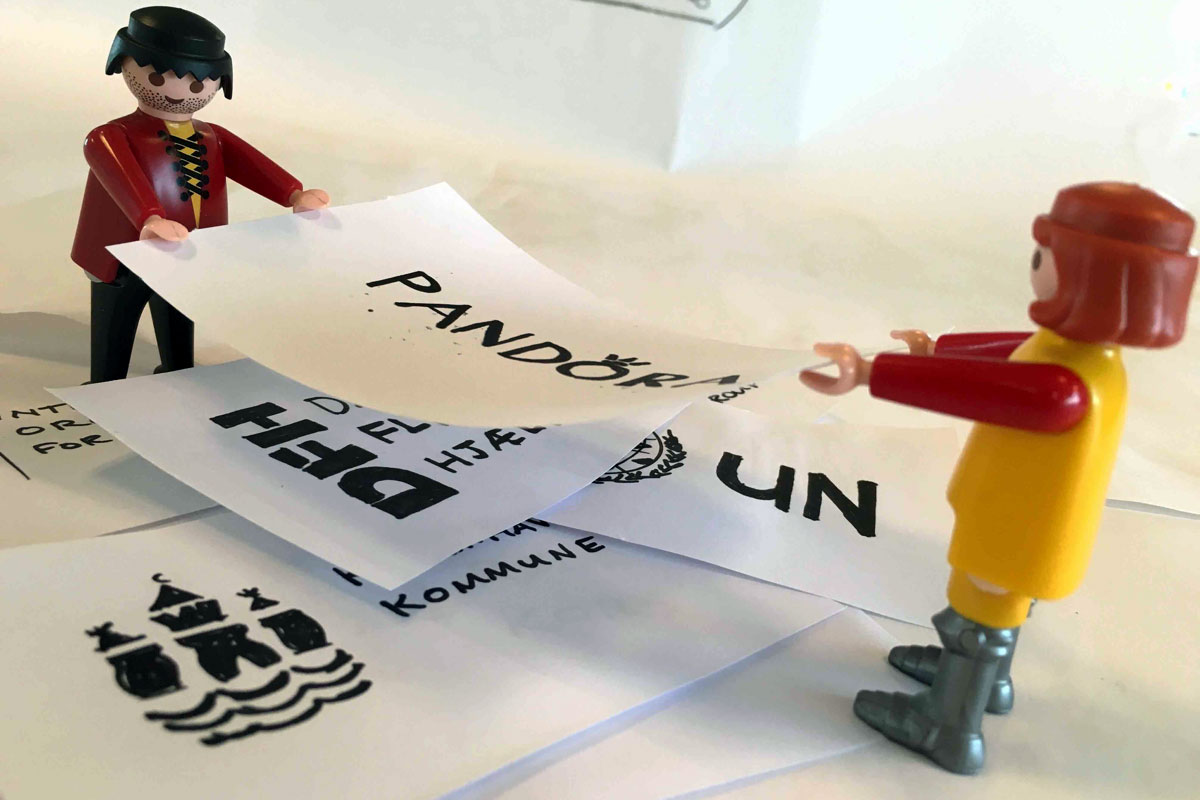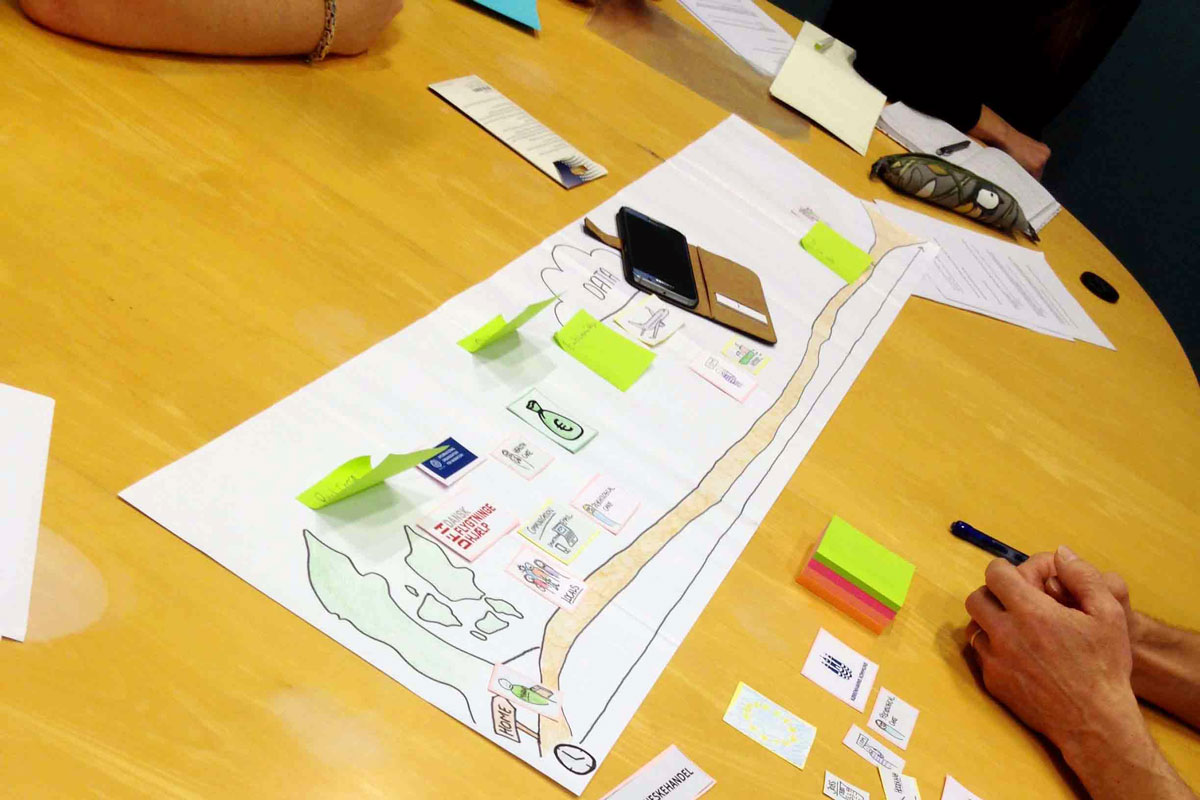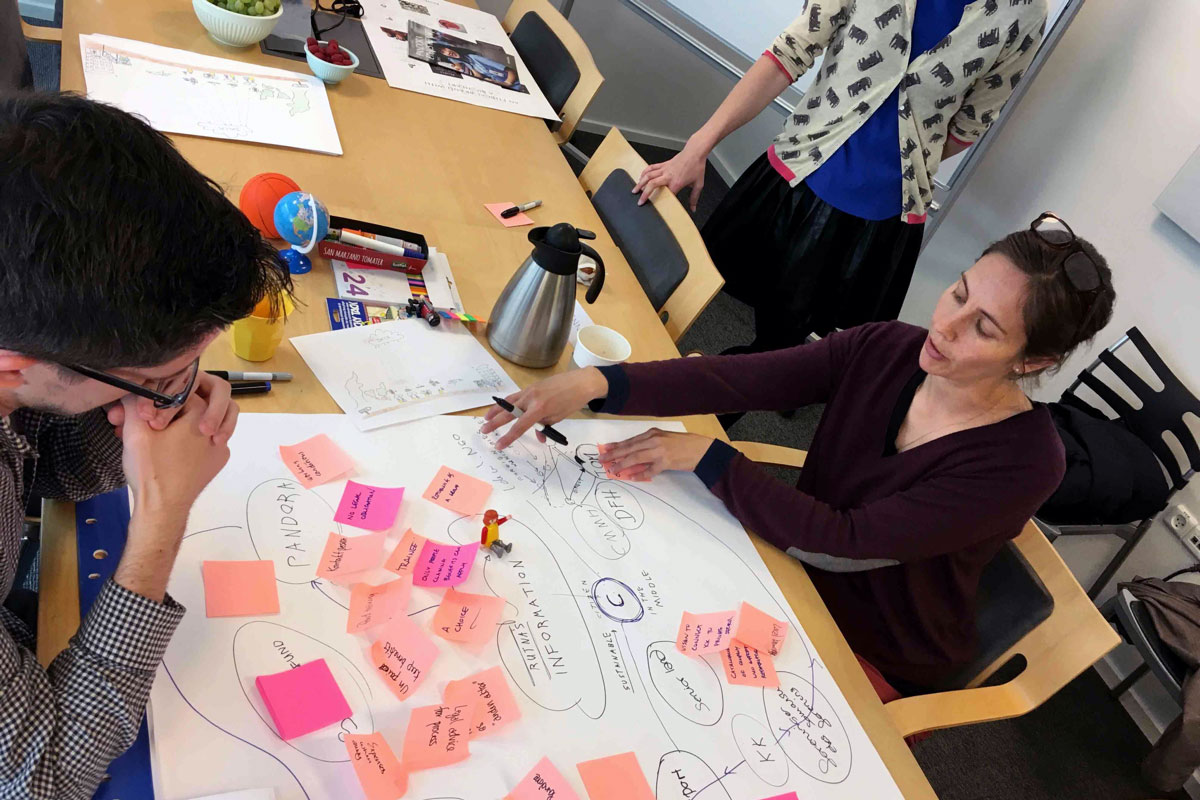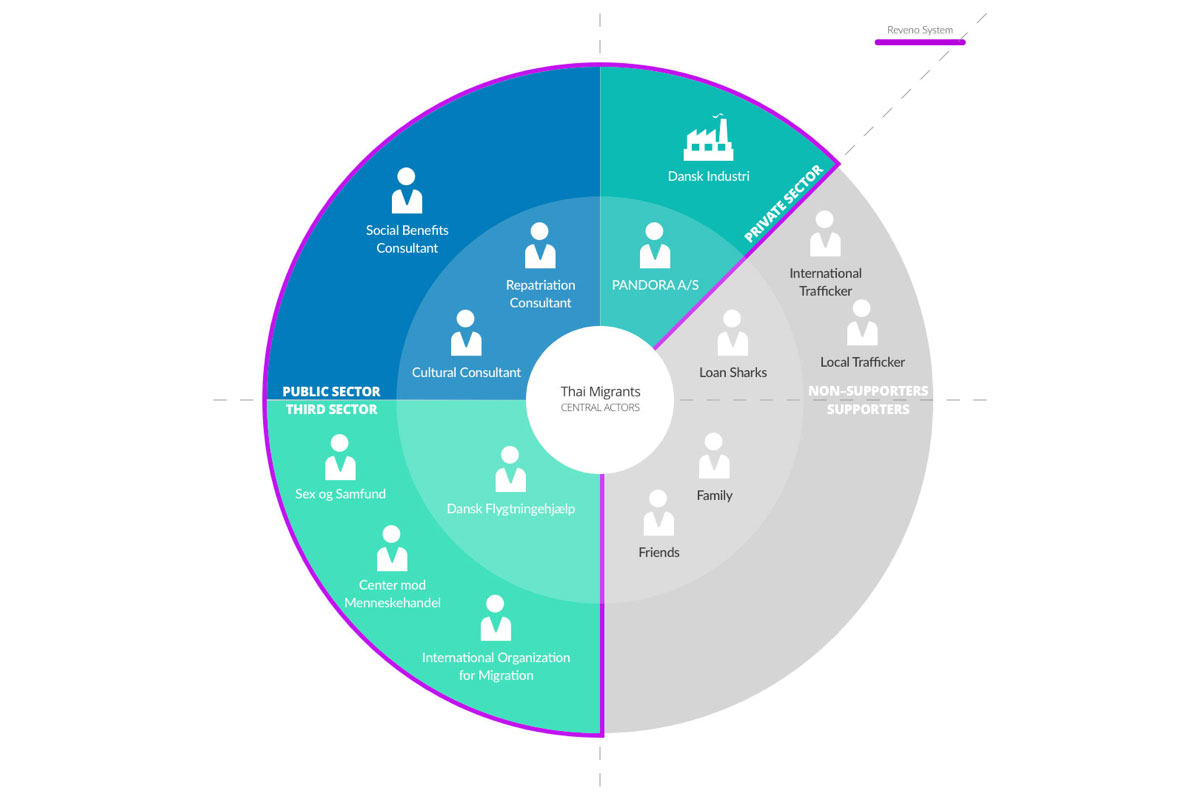Reveno
Providing sustainable repatriation
- Public sector
- Journey mapping
- Distributed systems
Date
February – June 2016
Working with
- Municipality of Copenhagen
- Dansk Flygtningehjælp
- Pandora
Tools and methods
- Co-creation
- User journey mapping
- Systems thinking

Inviting organisations to support the needs of vulnerable migrants.
“How might a service system allow public services to collaborate with private companies and international NGO’s in the repatriation of socially vulnerable migrants?”
Today in Denmark, the Government offers migrants without means, economic funds to help those who fulfill certain criteria, repatriate to their home country. However, it was discovered that upon their return home, many socially vulnerable migrants struggle to become free from their problems and find it hard to settle back into a society that they left behind many years ago.
Reveno is a system developed for organisations to work together to support migrants who choose to return to their home country. It is a service which announces and advertises opportunities for development towards a sustainable future/return. It is a service based on a distributed system which connects three sector types (public, private and third) across in Denmark and abroad.

Journey mapping with migration experts at the UNHCR

Co-creation session with experts from social services
For this project, the team focused on developing an 'evolving user journey map'. This item was shaped by multiple migrant experts from social services and NGOs.
Discovery through word-of-mouth: While we were able to conduct a small amount of online research, we found that it required referrals and inside-knowledge to meet with various stakeholders. The nature of the existing service: there are many broken and loose ends, and we found that this was somewhat reflected in our research.
Reveno would be especially appealing for businesses who, for example, take a “triple bottom line” approach towards measuring corporate sustainability.
- Traditional corporate profit
- Environmental responsibility
- Social responsibility

Sketch of a user-centred service for vulnerable migrants
Reveno supports people in building a sustainable future in their home country, once they have repatriated. Even though the financial support provided by Denmark is welcome and needed by some people, it was discovered that vulnerable migrants require more than just money; they require long-term support and planning. This isn’t necessarily the job of the Kommune, but there should be some ‘handover’ support process between sectors/agencies.

Actors' map with vulnerable migrants position at the centre
The actors' map was created to gain a better understanding of who are the different actors and stakeholders in the system. The actors are divided into those who act inside of the repatriation service system Reveno, and those who act outside of the service.
Inside the service, there are three sectors previously mentioned; public, private, and the third sector. Actors who operate within these sectors have been positioned accordingly. Those who are position closest to the centre are actors who are in direct contact with Thai migrants, while those position towards the outskirts of the map are considered to be background operators and supporters of the service system.
Outside the service we categorised actors as being either supporters or non-supporters of the Thai migrants. These actors were included in the map because they play a vital role in determining whether the migrants will succeed or fail in creating a better life for themselves upon repatriating.
This proposal aims to connect outgoing migrants to relevant services, by sharing data between both public and private partners, thus building a depth of knowledge and accountability between supporting organisations.

System architecture
Reveno is a distributed system which connects three sector types: public, private and third, around the situation and needs of a vulnerable migrant who wishes to return to their homeland.